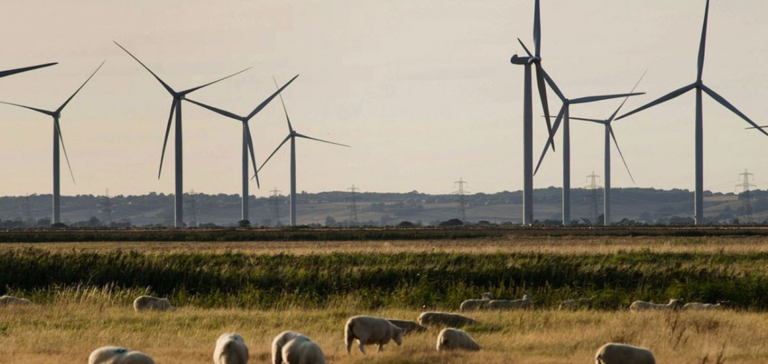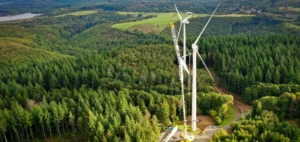In an era marked by unprecedented energy challenges, the UK is at a critical crossroads when it comes to the development of onshore wind power. Faced with the worst cost-of-living crisis in decades, exacerbated by soaring energy prices, the nation is placing increasing emphasis on alternative solutions.
Onshore Wind: Under-exploited Potential
Among these, onshore wind power offers considerable potential, albeit largely under-exploited. Like Ellis Jacklin, a mechanical engineer from the north of England, many Britons are turning to wind power as a way of reducing their electricity bills. Thanks to its membership of a local onshore wind turbine “Fan Club”, Jacklin has made significant savings on its energy bill. This scheme, launched by Octopus Energy Generation, illustrates the growing interest in renewable energies among consumers.
Regulatory constraints and local opposition
However, onshore wind development in the UK has been hampered by strict regulatory constraints imposed since 2015. Opposition in some rural areas, in particular, has led to the introduction of rules that allow a single local resident to block the installation of new turbines. These measures are seen by wind power advocates as a de facto ban, hampering the country’s 2050 carbon neutrality targets.
The Role of Innovation and Local Initiatives
In the face of these challenges, innovative initiatives are emerging. Octopus Energy Generation recently launched “Winder”, a platform designed to facilitate the installation of wind turbines by connecting local groups with landowners. This ambitious project aims to democratize access to wind power while circumventing some of the existing regulatory constraints.
Economic and environmental benefits of onshore wind power
The potential benefits of onshore wind power are not only economic, but also environmental. In regions like East Yorkshire, the use of wind power not only reduces electricity bills but also contributes to a more sustainable energy future. Consumers like Ellis Jacklin are using the technologies available to maximize these benefits, by adapting their consumption to periods of high wind generation.
Onshore wind power in the UK is at a turning point. Between regulatory constraints and technological innovation, this sector could play a crucial role in the country’s energy transition. Solving the current challenges and exploiting its full potential could not only alleviate the cost of living crisis, but also make a significant contribution to the goal of carbon neutrality.
Onshore wind power in the UK is at a turning point. Between regulatory constraints and technological innovation, this sector could play a crucial role in the country’s energy transition. Solving the current challenges and exploiting its full potential could not only alleviate the cost of living crisis, but also make a significant contribution to the goal of carbon neutrality.






















